Any person wants to better understand his essence, to know what he is.
To do this, you can learn about types of temperament and their psychological characteristics.
What is temperament?
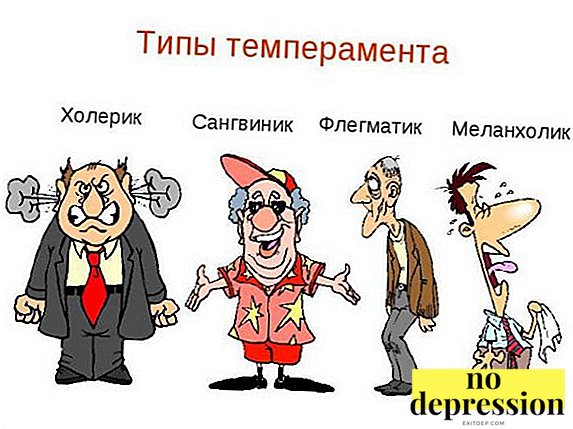
Temperament - These are the individual characteristics of a person, which determine his behavior and mental processes.
Properties of temperament are transformed into character traits.
There are 4 main types of temperament.:
- Phlegmatic person. He is imperturbable, rather stingy with the expression of feelings. Emotionally stable and balanced. Differs perseverance and perseverance.
- Choleric. Gusty, fast, passionate. His mood changes with great speed. Often keen on something, but quickly burns out.
- Sanguine. Moving, hot man. He also often changes mood, but the psyche is stable. Easily put up with troubles and failures.
- Melancholic This is a person who is constantly experiencing, pondering something. Very impressionable and easily visible.
About 4 types of human temperament in this video:
What characterizes a person as a person?

People are very multifaceted. And to characterize a person as an individual it is best to use several signs at once:
- temperament;
- character;
- abilities;
- motivation.
- character
Each of these signs allows reveal a person from a certain side. Therefore, only their totality is able to convey all personality traits.
Classification and Varieties of Character Traits
In psychology, there are two main approaches to the classification of character traits.
Character traits are directly related to mental processes, respectively, they can be divided into:
- Willful. These include activity, determination, perseverance, organization, independence, self-control, perseverance and others.
- Emotional. They include impressionability, responsiveness, impetuosity, indifference and others.
- Intellectual. Here you can call curiosity, resourcefulness, ingenuity, erudition and so on.
Character traits associated with the orientation of the individual. Allocate:
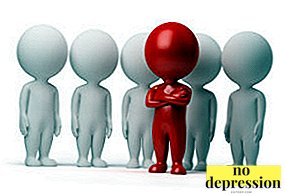 Attitude towards people. This includes sociability, isolation, tact, rudeness, and so on.
Attitude towards people. This includes sociability, isolation, tact, rudeness, and so on.- Relation to activities. Here you can call diligence, laziness, responsibility, bad faith and others.
- Attitude towards the world around. Among such features emit neatness, negligence, generosity, stinginess and so on.
- Attitude to yourself. This includes self-confidence, self-criticism, narcissism, modesty and others.
What is personality? Scientific view:
Psychotypes - general characteristics
Human psycho-types form cognitive-behavioral and emotional-psychological characteristics. They are laid in the process of education and socialization of the individual.
Let us consider them in more detail in accordance with various classifications.
What are the types of character?
By Jung
Jung proposed the following character classification:
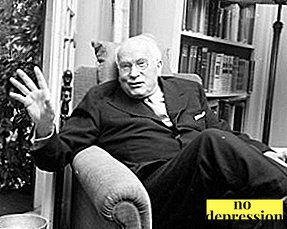 Logical-intuitive extrovert. Easily inspired, knows his abilities and capabilities, is not afraid to take risks. Inclined to close communication with people and to a positive view of the world.
Logical-intuitive extrovert. Easily inspired, knows his abilities and capabilities, is not afraid to take risks. Inclined to close communication with people and to a positive view of the world.- Logic-sensory extrovert. Differs in performance, always brings the begun to the end. Prefers noisy companies. Can be stubborn, hot-tempered and sharp.
- Ethical-intuitive extrovert. Emotional personality, different expressive facial expressions and the ability to speak beautifully. Prone to jealousy.
- Ethical-sensory extrovert. She gets along well with people, takes care of them, but can manipulate them with the help of emotional pressure.
- Logic-intuitive introvert. Differs in practical thinking, does not like idle chatter. Has difficulty in dealing with other people.
- Logic-sensory introvert. Pedantic and strict, likes order in everything. It takes up some business only if it is sure that it will be able to do it.
- Ethical-intuitive introvert. Very vulnerable, hard to endure a lack of love and aggression. Prone to self-education.
- Ethical-sensory introvert. Inclined to analyze, and both himself and other people. Able to stand up for themselves, to defend their principles and views.
- Intuitive logical extrovert. Easily adapts to the new, has a wide range of interests. Able to create a new idea based on ready-made components.
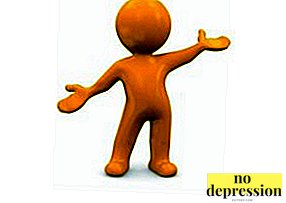 Sensory-logical extrovert. It is inclined to achieve victory in spite of everything, it may even use physical force for these purposes. Does not know how to be subordinate, likes to lead everything and everyone.
Sensory-logical extrovert. It is inclined to achieve victory in spite of everything, it may even use physical force for these purposes. Does not know how to be subordinate, likes to lead everything and everyone.- Intuitive ethical extrovert. Subtle feels of others, sociable. Inclined to creative work, does not like the routine and monotony.
- Sensory-ethical extrovert. In communication, it is primarily guided by its own interests, manipulated by others at the expense of their weak points.
- Intuitive-logical introvert. He likes comfort and coziness, stingy with the expression of emotions. Differs caution. Analyze everything in detail before making a decision.
- Sensory-logical introvert. He likes to work with his hands, has a technical mindset. In communication is based on their own feelings, does not like insincerity in other people.
- Intuitive ethical introvert. Differs dreaminess, good sense of humor. Well versed in people and knows how to arrange them to yourself.
- Sensory ethical introvert. Avoids conflicts, likes to joke a lot. Quietly related to the routine and monotony, enjoying life in all its manifestations.
According to Fromm
According to the classification Fomma distinguish the following types of character:
- Receptive. He has an optimistic view of the world, is distinguished by friendliness and responsiveness. Searches for surrounding support. Desires to be loved, hard to perceive the lack of attention or love.
- Exploiting. Trying to get everything from people with cunning and strength. Able to give sarcastic and sarcastic comments to other people. Differs in envy, cynicism, suspicion.
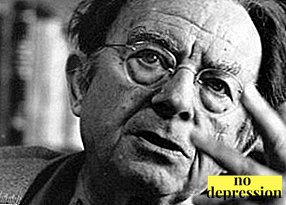 Accumulative. Differs stinginess, which is common to everything: thoughts, feelings, actions, money, things. Differs stubbornness, cleanliness, thoroughness, as well as suspicion.
Accumulative. Differs stinginess, which is common to everything: thoughts, feelings, actions, money, things. Differs stubbornness, cleanliness, thoroughness, as well as suspicion.- Market. Such people are able to form in themselves those qualities that are in demand from others. They treat everything superficially, without delving into anything.
- Productive. Such a person is able to use his existing abilities and realize his own potential. He thinks independently, respects himself and others.
According to Freud
Freud distinguishes the following types:
- Oral. This includes people who talk a lot, constantly gnawing something, continuously smoking.
The typical features of this type include manipulativeness or passivity, delight or envy, gullibility or suspicion, optimism or pessimism.
- Anal. Differ tidiness, accuracy, flexibility of thinking, punctuality. They can also be called secretive, stubborn, aggressive.
- Phallic. Their typical trait is elegance or a penchant for simplicity, vanity or self-loathing.
- Genital. Differs in good mental health, effectiveness, full adaptation and socialization.
According to Kretschmer

Psychologist Krechmer linked the character with the physique of a person. Allocated 3 types:
- Asthenics. People with weak muscles, thin, with long legs and arms, elongated face. They are poorly adapted to change, stubborn and closed.
- Athletics. People with strong muscles, tall. They do not tolerate change, unimpressive and calm.
- Picnics. People are prone to corpulence, low, with inexpressive facial features. They adapt well to change, actively express emotions, and are sociable.
Typology of character in psychology
In psychology, character is interpreted using a five-factor model. It includes the following factors:
- Openness to the new. Reflects the attitude to change, the search for a new experience. High scores for this characteristic of inquisitive, active people with unusual thinking.
Low scores on mundane people, with limited interests and stereotypical thinking.
- Consciousness. Reflects the degree of education and motivation of the person. High scores from a purposeful, organized, reliable, accurate person. Low scores for people lazy, careless, careless.
- Extraversion. Reflects the degree of activity, the intensity of interpersonal interactions. Extroverts get a high score - people are sociable, easy-going, hot-tempered and superficial. Low score from introverts - people thoughtful, closed, serious.
- Goodwill. Reflects the attitude of a person to others. High scores from a gullible, good-natured, generous person. Low scores get irritable, suspicious, rude people.
- Neuroticism. Reflects the emotional stability, adaptability of man to life. High scores get restless, emotionally tense, insecure people. Low scores - balanced, calm, self-confident people.
Human nature and types of people:
Brief description of personality types
Character types:
 Passively aggressive. People who accumulate emotions in themselves do not actively oppose what they don’t like. They suppress anger, but show it passively, by their appearance and manner of behavior.
Passively aggressive. People who accumulate emotions in themselves do not actively oppose what they don’t like. They suppress anger, but show it passively, by their appearance and manner of behavior.- Cycloid. Such people are subject to a sharp change of mood. Increased activity occurs immediately after depression. They are cheerful and sociable, but at the same time they do not like public speeches and reproaches.
- Isteroid. Such people love to be in the spotlight. At the same time they are afraid of being ridiculed or getting hit on the egu. Differ active position, sociability, perseverance. A low threshold of sensitivity is characteristic of the type of temperament.
- Hysterical. People who unconsciously seek to attract attention, but at the same time they do not like the popularity and hype around them.
- Epileptoid. Such a person is distinguished by scrupulousness, petty accuracy, meticulousness. He is also punctual, careful and attentive to his health. Distinguished by the desire to dominate.
- Stuck. Such people are distinguished by the transition from a good mood to despair, vanity, sensitivity and suspicion.
- Demonstrative. People who are characterized by flattery, boasting, vanity and self-confidence.
- Exalted. A person who is particularly emotional. They have instant mood swings. In this case, the reason for this can be any little thing.
- Emotive. Such people are distinguished by compassion, fearfulness, gentleness. This is a type of temperament, characterized by mild vulnerability.
- Unstable. These include people who are lazy, loving idle pastime and idleness. Sociable, love to talk a lot.
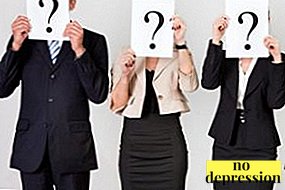 Introverted. A person who is focused on his own inner world, on his experiences and feelings. He is not sociable, prefers quiet pastime, often chooses loneliness.
Introverted. A person who is focused on his own inner world, on his experiences and feelings. He is not sociable, prefers quiet pastime, often chooses loneliness.- Distributable. This includes people who are focused on failure, constantly fearing and experiencing. A type of temperament characterized by a slow response.
- Pedantic. Such a person differs in fear of not being in conformity with his ideals. Conscientious and indecisive, prone to hypochondria.
- Paranoiac. Such a person will do everything to achieve his goal. Differs in the increased working capacity.
How to determine the character in appearance?
General character traits can be defined by the appearance of people: men and women. To do this, pay attention to the following:
- Manner of dress. She can express demonstrativeness, a desire to stand out, or, conversely, shyness and indecision.
- Accessories. If there are too many of them, then it can speaks of expressiveness and vanity. Their absence can express the directness and simplicity of a person.
- Gestures and facial expressions. Active gestures are inherent in expressive people. Scanty and indecisive gestures speak of the insecurity and squeezing of a person.
In psychology, there are many classifications that describe the temperament and character of a person. But rarely there are pure types, mostly people are on the verge of a few.
Determining a person’s character by appearance:

 Attitude towards people. This includes sociability, isolation, tact, rudeness, and so on.
Attitude towards people. This includes sociability, isolation, tact, rudeness, and so on. Logical-intuitive extrovert. Easily inspired, knows his abilities and capabilities, is not afraid to take risks. Inclined to close communication with people and to a positive view of the world.
Logical-intuitive extrovert. Easily inspired, knows his abilities and capabilities, is not afraid to take risks. Inclined to close communication with people and to a positive view of the world. Sensory-logical extrovert. It is inclined to achieve victory in spite of everything, it may even use physical force for these purposes. Does not know how to be subordinate, likes to lead everything and everyone.
Sensory-logical extrovert. It is inclined to achieve victory in spite of everything, it may even use physical force for these purposes. Does not know how to be subordinate, likes to lead everything and everyone. Accumulative. Differs stinginess, which is common to everything: thoughts, feelings, actions, money, things. Differs stubbornness, cleanliness, thoroughness, as well as suspicion.
Accumulative. Differs stinginess, which is common to everything: thoughts, feelings, actions, money, things. Differs stubbornness, cleanliness, thoroughness, as well as suspicion. Introverted. A person who is focused on his own inner world, on his experiences and feelings. He is not sociable, prefers quiet pastime, often chooses loneliness.
Introverted. A person who is focused on his own inner world, on his experiences and feelings. He is not sociable, prefers quiet pastime, often chooses loneliness.

